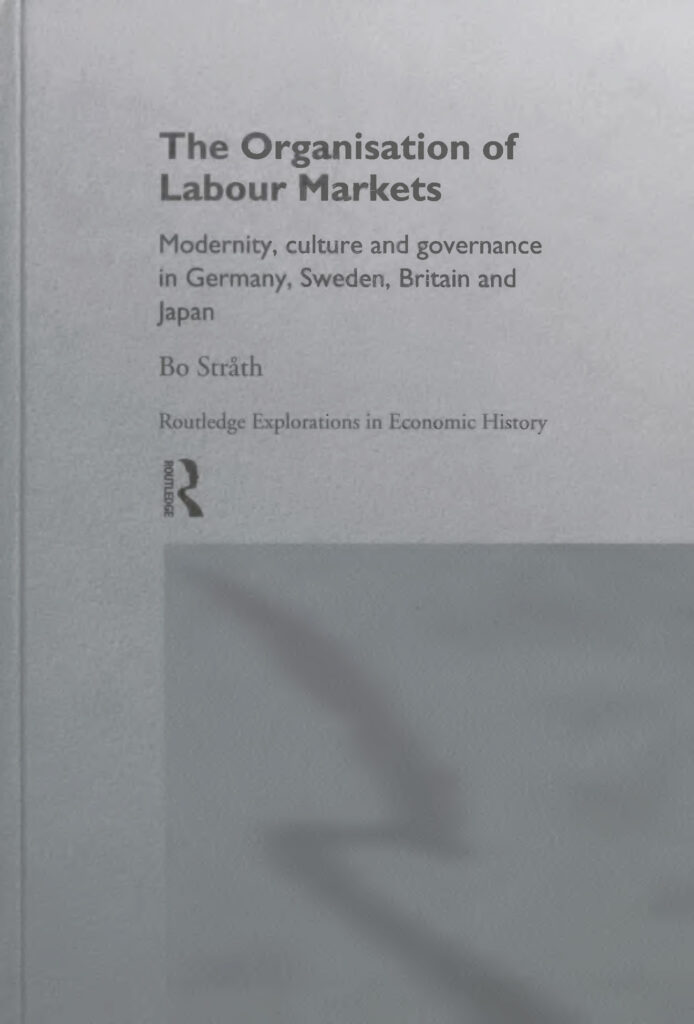Modernity, culture and governance in Germany, Sweden, Britain and Japan,
Bo Stråth

Organisation of Labour Markets: Governance, Culture and Modernity in Germany, Sweden, Britain and Japan. Routledge, London 1996
Abstract
There have been dramatic shifts in the behaviour on labour markets and the conduct of industrial relations in the last century. This volume explores these changes in the context of four societies: Germany, Sweden, The UK and Japan. The Author demonstrates that, despite their manifest differences, for long periods, these countries’ labour markets were similar in many important respects; at crucial moments, however, they were shunted onto divergent tracks.
The emphasis is thus on complexity, contextuality and contradiction in the interaction of economic and political processes rather than on success stories and failures. The organisation of labour markets and the emergence of nationally specific patterns of industrial relations are shown to be the result of ongoing problem-solving processes. Power relationships between employers, trade unions and governments are mapped out in detail, and the experiences of the individual countries are contrasted. Crucial to the outcome is the role of tradition within individual countries, which is, paradoxically, an agent of modernisation.
Among other things, the book discusses:
- the failure of neo-corporatism in Britain in the 1970s, and the subsequent rise of Thatcherism
- the rise of Japan as a model for orderly industrial relations in the 1970s
- the collapse of the German and the success of the Swedish labour markets in the 1930s
This book rejects a view on modernisation as a converging process towards an identical organisation of society and demonstrates the diversity of societal organisation. In this cultural perspective, the question of who has the power to formulate problems in the social discourse is crucial. A key question is how the community was established, either in a liberal Tayloristic/Keynesian form or as fascism, and how institutions for compromises emerged. Both the liberal and the fascist cases promised a world without conflicts. The invocation of traditional values is demonstrated to be crucial in the processes of meaning-building.




































